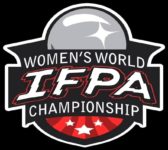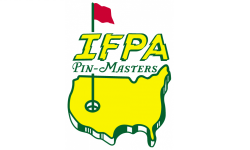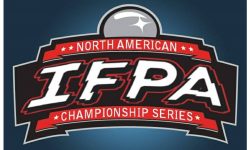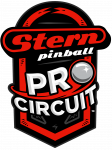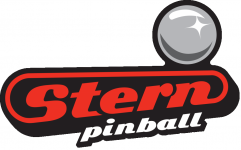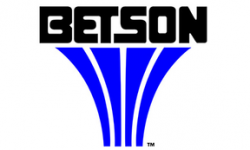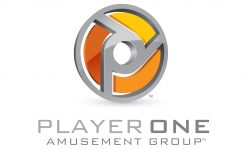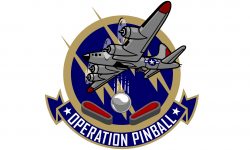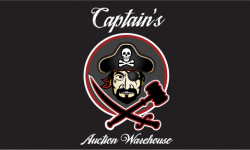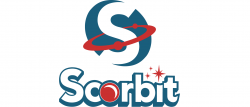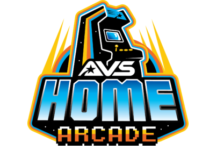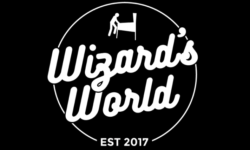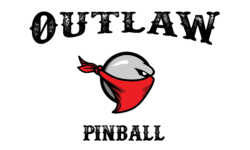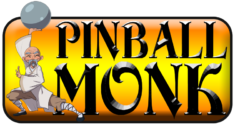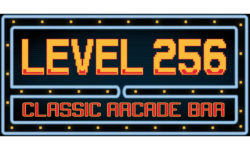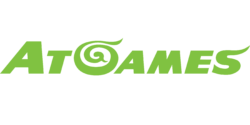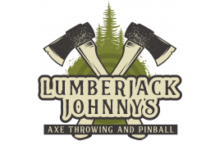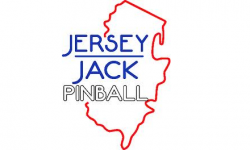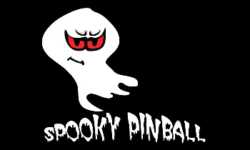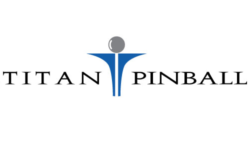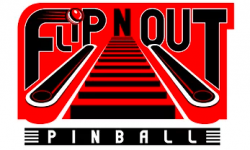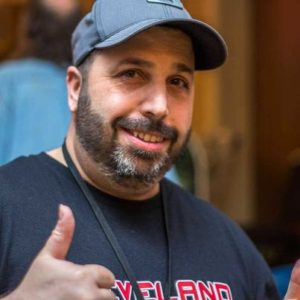 Louis Marx’s interview with Tournament Director:
Louis Marx’s interview with Tournament Director:
Tommy Bizzi
Interviewer:
Louis Marx, Owner/Director, DFW Pinball League (Rowlett, Texas).
Hello again! As I said last time, I am glad to be back writing again. Oh, there are a few articles on the IFPA website that I have written, ‘here and there.’ However, I choose to leave my name off those articles. I want it to be about the pinball, not me. I only put my name on these Tournament Director interviews because I have been asked to. I do hope you enjoy!
If you are interested in telling your story or you have suggestions for questions that you’d like included in these interviews, you can reach out to me Facebook (privately or through the DFW Pinball League page), at LMA574 on Pinside, or through the IFPA. I’d be happy to hear from you.
So, for my next conversation, I had a great phone call on February 3, 2024, with Tommy Bizzi. He’s most known for his time in Cleveland, even though he doesn’t live there anymore. This was a great conversation. It went very LONG because we both wandered into “side-stories”, all about pinball. This is a good thing as we both enjoyed the stories that we each had to tell. As a pinball enthusiast, Tommy is amazing and it was my honor to get to speak to him.
KEY:
LM = Louis Marx
TB = Tommy Bizzi
LM: Let’s start with biographical info. Where are you from originally?
TB: Born and raised in Massachusetts
LM: I see your phone number is a Hawaii number, how many stops did you make before you got to Hawaii.
TB: That was it, Massachusetts to Hawaii, then Ohio, and then Arizona.
LM: Where do you live now, Arizona?
TB: Just outside of Phoenix, Arizona for almost 2 years.
LM: Where in Ohio were you before that?
TB: I started in Cleveland, Ohio. I was there for 10 years. That is where I met all the people and my semi-professional career began.
LM: How long have you been Directing Tournaments?
TB: Started in about 2012. Starting helping and then moved on to being a Director. That actually, kind of happened on accident. It was like, ‘here, take over” and I just started helping out. But here’s the good part, the beginning. That’s where I had no idea about tournaments and this stuff was going on. I was doing a Google search for pinball machines. That’s where I found the Ohio Pinball Show in 2012. At the show they had a tournament. I was amazed at how many pinball machines were there and that something like the tournament even existed
LM: So you found the Ohio Pinball Show, who was the first person that you met, that your still friends with?
TB: Marvin Ortscheid and Mike Pacak who run the show. Then I met Donny Johnson through Mavin. Trent Augenstein and Andy Rosa were also running the tournament. I also met Joshua Henderson through the finals. I am still friends with all of them.
LM: You said that you started Directing and/or assisting in 2012. This was this pretty fast, after the show, so what happened?
TB: Immediate friendships that would be extended to working with Dony Johnson. We started helping him out at Kidforce Collectibles and doing directing there. We also went to Stone Hedge, which is now called Station 300. That was Marvin Ortscheid’s place. We all got together and it collaborated as a community. When I met Donny, he said “yeah you should come by.” Kidforce Collectibles started out with 5 pinball machines and today has 24. If it was not for Kidforce Collectibles’ owner, Joe Kiskis collaborating with Donny running the tournaments, the Cleveland Pinball Community wouldn’t be where it is today. The value of that collaboration is immeasurable. Kidforce Collectibles is where I started and they have the largest league in the country right now, regularly drawing 100 players.
LM: Tell me about the pinball experience in Hawaii.
TB: Went to Hawaii for ten years and there just wasn’t any pinball. So that was a 10 year hiatus of no pinball. So then going to Cleveland, within three weeks, I was “back on the mainland” and I found a pinball machine at a bar. I was like, “all right!”. It was literally a week after arriving from Hawaii that I found the Ohio show and was playing in a tournament. If you can imagine playing against the top players in the world, not knowing who they are, after a ten year hiatus of no pinball. That’s when my IFPA professional experience started.
LM: How many participants did you have at your first solo event?
TB: I have no idea. I think we started off pretty slow. I would think maybe 16. I think we only had 5 machines at the time so it couldn’t have been too many.
LM: Shifting gears a little bit, in Arizona for two years now, what kind of a pinball scene did you find when you got there?
TB: I’m semi-retired but I still don’t go out and do much because of family. So, I don’t play much. That said, there is a lot of pinball here. There are a LOT of places that have 30, 50, 70 games. I just do not get out there much. I still do the circuit events in Ohio and travel back from time to time. It was amazing how disconnected they were, in Arizona, in some aspects from knowing what’s going on in the national scene and not knowing the “known players”, but they have a ton of machines, tournaments, and players.
LM: So, if you were to walk in and want to organize a tournament for them (Arizona), what kind of reaction do you think you would get?
TB: They don’t know who I am. I’ve played in maybe 2 tournaments since I’ve been here and I hosted one since I’ve been here. That was for people from work and they were already running a tournament at the venue. They were amazed at how organized he was. They even gave me a prize to give away. It was surreal. Basically two tournaments were going on at once. They were amazed that I had my own tablet and that I knew the matchplay software already. They were kind of like, “Who is this guy?”
LM: Since moving Arizona, are there pinball regrets?
TB: No because I am starting to develop here a little bit – casual play and that one tournament. It still keeps me fresh. It was fun to jump into the scene out of nowhere after my first year and still be competitive. That comes from a lot of us that have been playing for so long, it just like riding a bike, it comes right back.
LM: Do you have any machines at home? If yes, how long have you been a collector?
TB: Not Now – I sold my machines when I moved here.
LM: Before you sold all your machines, how many did you have?
TB: I only had two here. I never leally had the capacity for much more.
LM: Most TDs have machines in their home and a lot of them are collectors. Its refreshing to see someone who really cares about the pinball passion, but doesn’t necessarily need machines at their house. So now that you’ve only played in two tournaments in your two years in Arizona, how do you get your pinball fix?
TB: I just go out and do casual play. Any random pinball machine anywhere will satisfy me. I am a “Grand Champ” monger. I want to be the Grand Champion on every machine that I see.
LM: What is your first pinball memory and how old were you?
TB: Definitely at the age of 4 years old. Just how old my daughter is now and she’s been playing since she was 2. I was at a bowling alley and saw machines there and I was hooked instantly. I don’t remember what the specific game was. That’s not counting seeing the movie Tommy. It’s like “Wait a second, there’s a movie?” I guess the first one I could remember by name was in the basement of my friend’s place. That was Strikes and Spares.
LM: Are there any unique memories that you want to share?
TB: The Ohio shows was the biggest memory. I didn’t know who Trent was and who Andy was, but at the time, they were at the top. I didn’t know anything about Josh and his dad. Josh’s Dad introduced me to the IFPA. It was amazing making it to the finals of that tournament and coming in third against all these great players, not knowing who they were.
LM: How different is it to run larger versus smaller tournaments for you? What stands out?
TB: Just the mass of it I would think. Everything is still run the same whether its small or large. The pinball community that I had in Cleveland was massive and we were all a great pinball area (Michigan and Pittsburgh too). Running the big tournaments, you get to see the big players that travel. That’s why the big shows are so fun. You’re seeing the big people that you haven’t seen in a year.
LM: A lot of people feel intimidated about the phrase ‘competitive pinball’. From what I’ve read, some people will go to their first tournament, but never go back because of feeling like an outsider. So what do you do or suggest to help new players feel welcomed?
TB: I have a strategy and I do seminars for the Cleveland Pinball and Arcade show. I teach Pinball 101. I teach basics on a machine and talk about tournament play and regular play. I encourage them to go play in the tournament that is currently running. By the end of the seminar, I take the group over to an event and am there for them. I’ll direct traffic so they know what games to go play and in what order. Its about getting over that hump. I generally try to get them to play two different ones. A few actually start buying tickets at that point. It breaks that fear. Yes there are pros, but there are also amateurs. You just have to go and enjoy it.
LM: Directing Pinball Tournaments can be a thankless job, especially when some players take it more seriously than others. So, do you have any regrets or second thoughts?
TB: No, not at all. It comes with the territory.
LM: What’s the craziest or most unusual ruling you’ve had to make as a director?
TB: Cleveland Pinball and Arcade show and the machine caught fire (it started smoking) and nothing was recorded at the time. Obviously, the ruling is easy, new machine, but its memorable. We did try fixing the machine, but that didn’t go so well. It was a Demo Man machine. It was smoking up a storm and we thought the sprinklers were going to activate for the venue. We were very happy when they didn’t.
Rulings are tough in general. One time the venue cut the power on us during the finals, one and half hours into the game. We had to call up Josh on that one. Ultimately we paid them some extra money to let us stay and turn the power back on.
LM: What is your preferred or favorite tournament format to run? Why?
TB: Pin-brew is by far my favorite one. That’s kind of our thing with me and one other guy. Pin-brew is variation of match play. A lot of our players enjoy that one because its more relaxing. Pin-brew is more designed for amateurs as it gives them better opportunity to compete with the pros.
LM: Is there a specific format you don’t like to run? Why?
TB: They are both equally great. That said, if I have to pick one HERB style because its demanding and tedious. I still do it for the love of pinball and am happy to do it for the promoters of the show. I am happy to do both types that I run.
LM: Do you have any partners in pinball that you need to recognize?
TB: Jeffrey Dixon – he’s my Co-Director. We do this together; He came on the scene during the Ohio show and started helping me. It developed into friendship and then doing tournaments together. We’ve been doing tournaments together for 8 or 9 years now.
LM: What haven’t I asked that you feel the IFPA World needs to know?
TB: Stay strong within the pinball community and let it grow. Its not just where you’re at. You’ll meet new people and new friends. The people I’ve met and played with, I cherish. The most important part is the community, the people. That brings me joy!
At one point in time, I had run more than 100 tournaments per year (both sanctioned and unsanctioned), usually submitted under the business name. I was told that I had more tournaments than any other to Tournament Directors in the world for a time. I may still hold the record, not sure.






